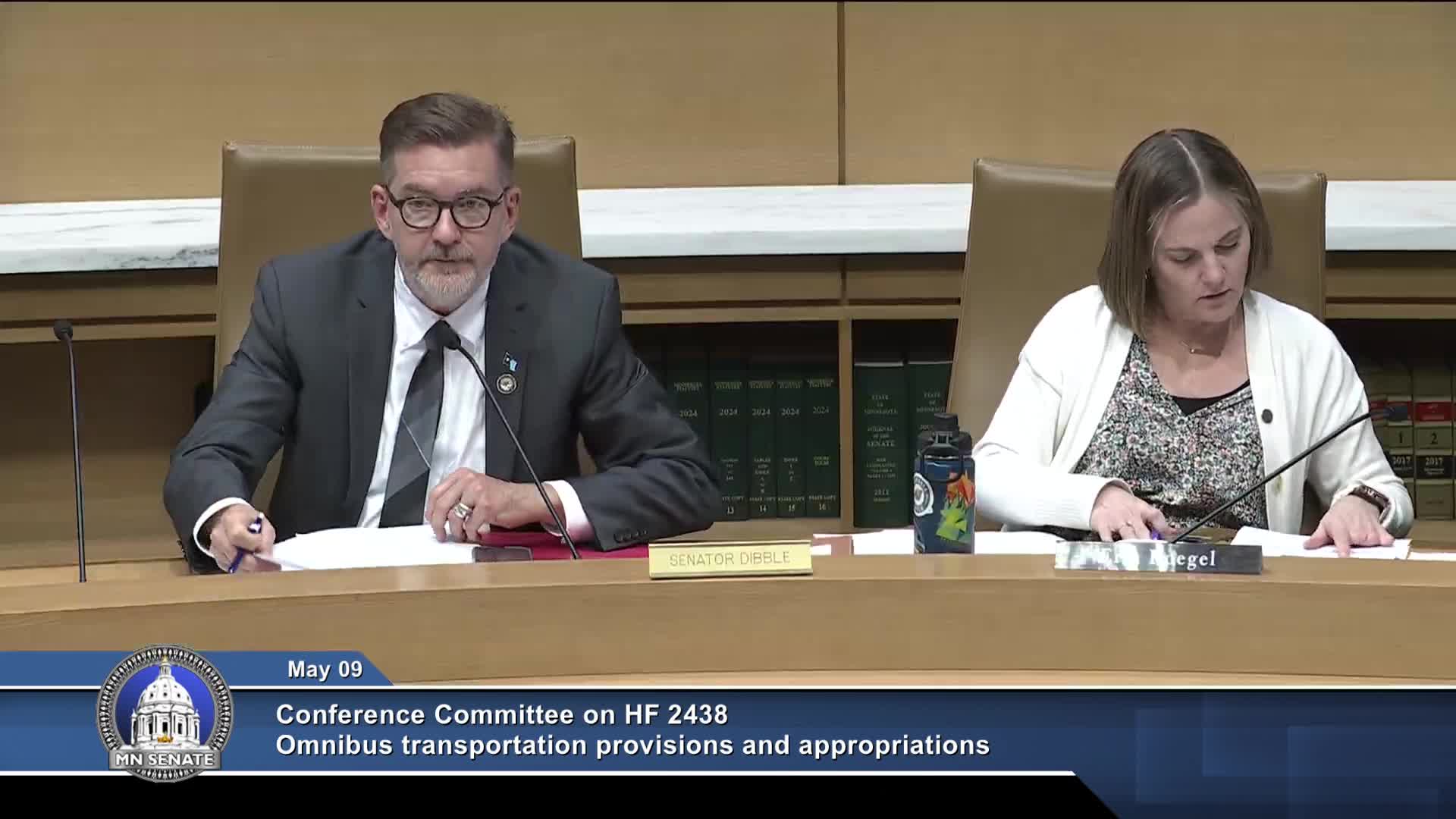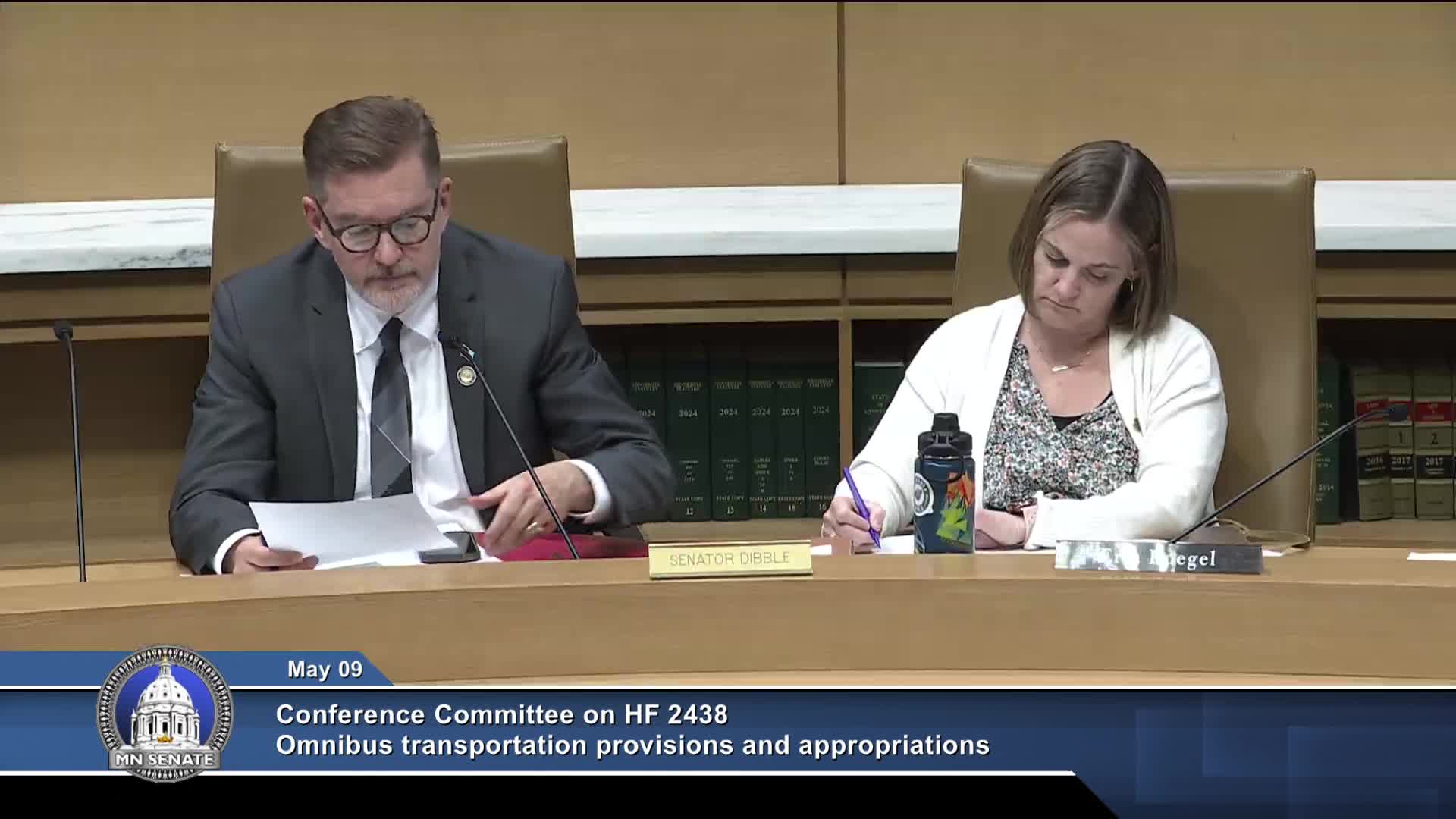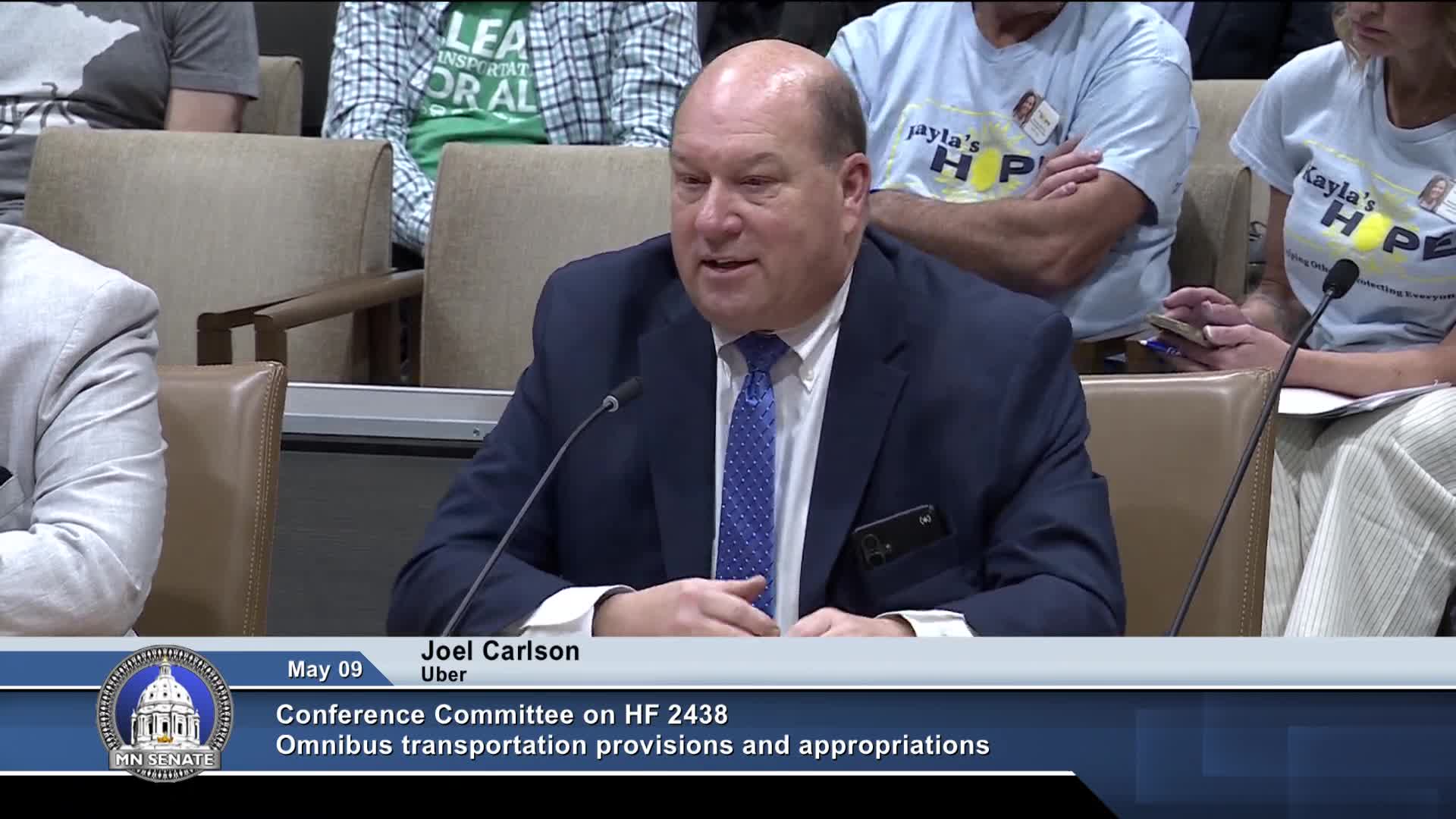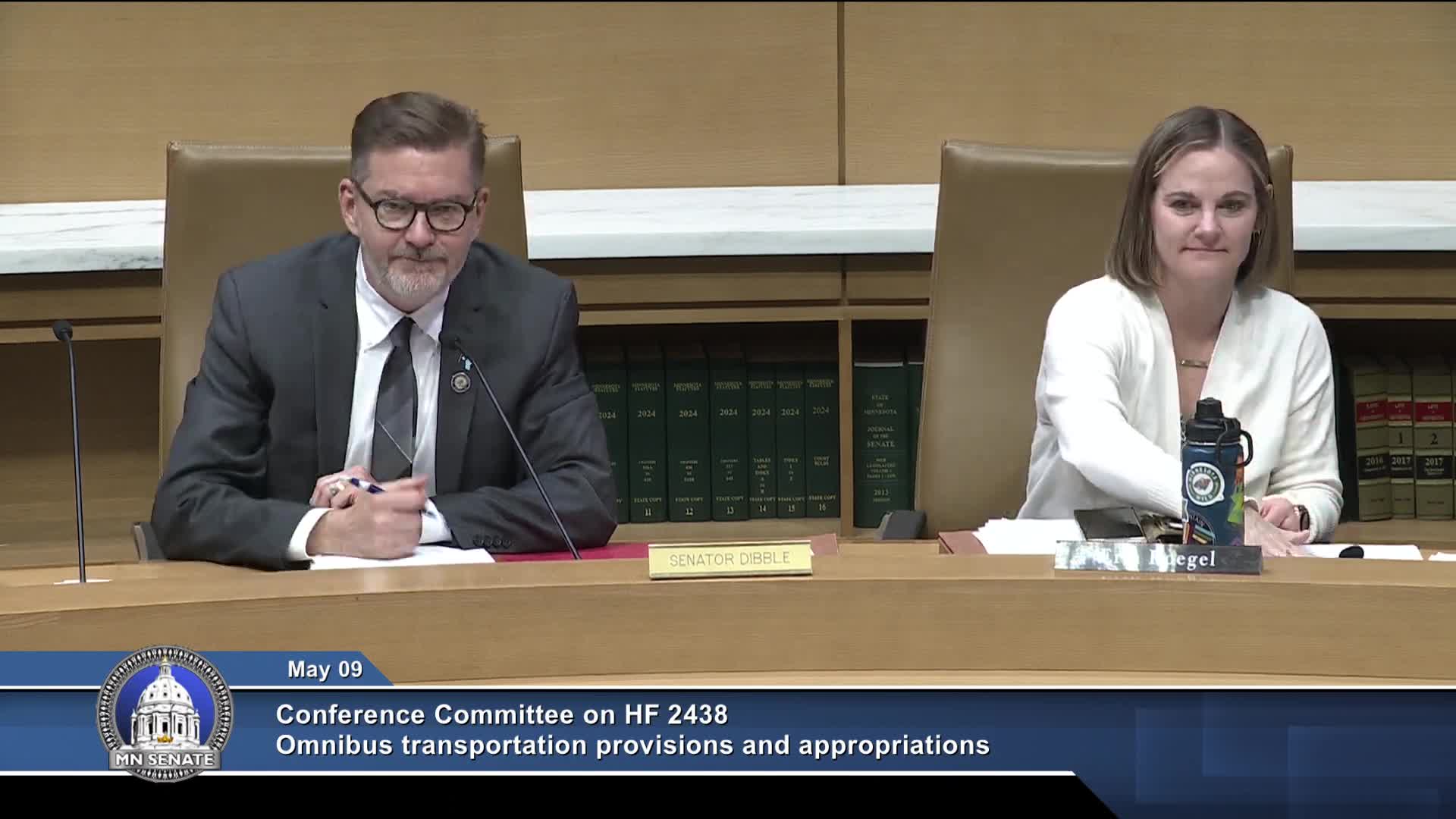Article not found
This article is no longer available. But don't worry—we've gathered other articles that discuss the same topic.

Deputy registrars urge revenue sharing, object to online driver's-license language; conference committee considers open appropriation for reimbursements

Transit advocates, unions and climate groups urge conference committee to protect transit funding and VMT law; unions oppose Northstar shutdown

Speakers from industry, health and consumer groups oppose large EV registration fee increase

